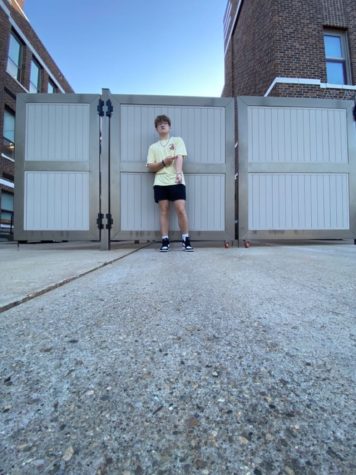High school can either be the best four years of a student’s life or the worst. After graduating, most people make the decision to jump right back into schooling at college. But for some people, they simply just aren’t ready. They are unsure about their career path, mentally unstable, or just not ready to go back to school.
There are lots of different routes available for experimenting with your career path, but perhaps the best way to discover yourself is to take a year off from school to adventure.
This break is commonly referred to as a gap year. According to GoOverseas, 40% of students nationwide are deeply considering taking a gap year.
Gap years are more prevalent in places like Europe and have been a pretty foreign concept to Americans over the years. Gap years go against the traditional American grain of K-12 school then going to college for another four years to find a career that fits you.
Gap years at a glance appear like an excuse for laziness; a year to do nothing but goof off. For some people it is. However, it’s a very personal choice. If one is innately lazy it may not be prudent if they take a year off because they will likely further engage in unproductive behavior.
If one’s child has always been a go-getter and lives a structured disciplined lifestyle, then they will likely take advantage of their gap year. The best advice for a parent is to know one’s child before supporting their decision.
Counselor Erica Thomas firmly believes in goal setting.
“I always consider goal setting to be the best way to get the most out of your gap year. If you know what you want to get out of your gap year experience and can then communicate that to your parents you can show them that you have a structured plan which they will appreciate and will help them get on board.”
If you have expectations of things you want to accomplish in your gap year, make them have a purpose. If you’re taking a trip, take it for more reasons than just to have fun. If you want to spend the entirety of it working, apply a greater meaning to it than just making money. Make it something that can be beneficial in the long run or when in college.
Highlands High School class of ‘22 alumni Ravi McKim took a gap year after his senior year of high school. McKim knew the potential risks associated with it, so he made sure to carefully plan his year-long escapade.
“One of the main goals I made was to find good ways to spend my time away from school rather than just sitting at home doing nothing all the time so that I could feel more accomplished and productive with my time away from classes.”
McKim said he believes that his break was altogether good for him but there were times when it “dragged along.”
It’s not unusual for one to experience boredom from time to time during their gap year, even with a well-formulated plan with attainable goals.
In this situation, some things to do are learn a new language, explore a new hobby, exercise, hang out with friends, or learn a new skill. It’s essential to learn new skills because what you learn during your gap year can be applied to your college application.
On a side note, CollegeRaptor states that students who take a gap year typically earn 0.15 to 0.2 points higher on a 4.0 scale GPA than students who don’t.
Whether or not taking a gap year will be beneficial to everyone, it has its pros if one is unsure about life, college, or career.




